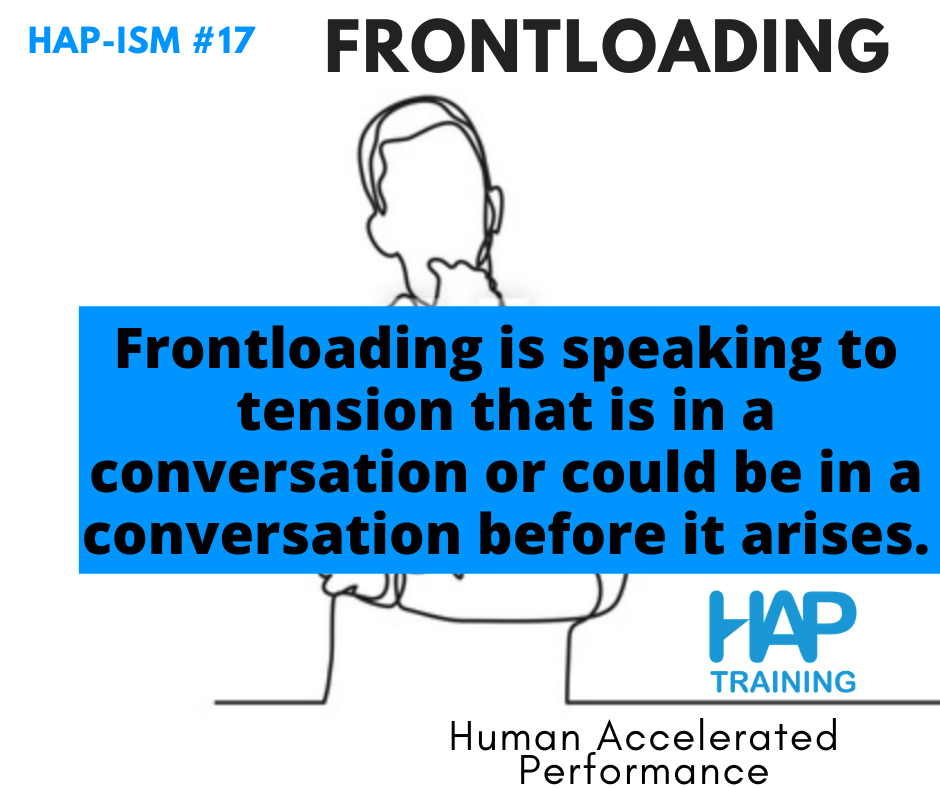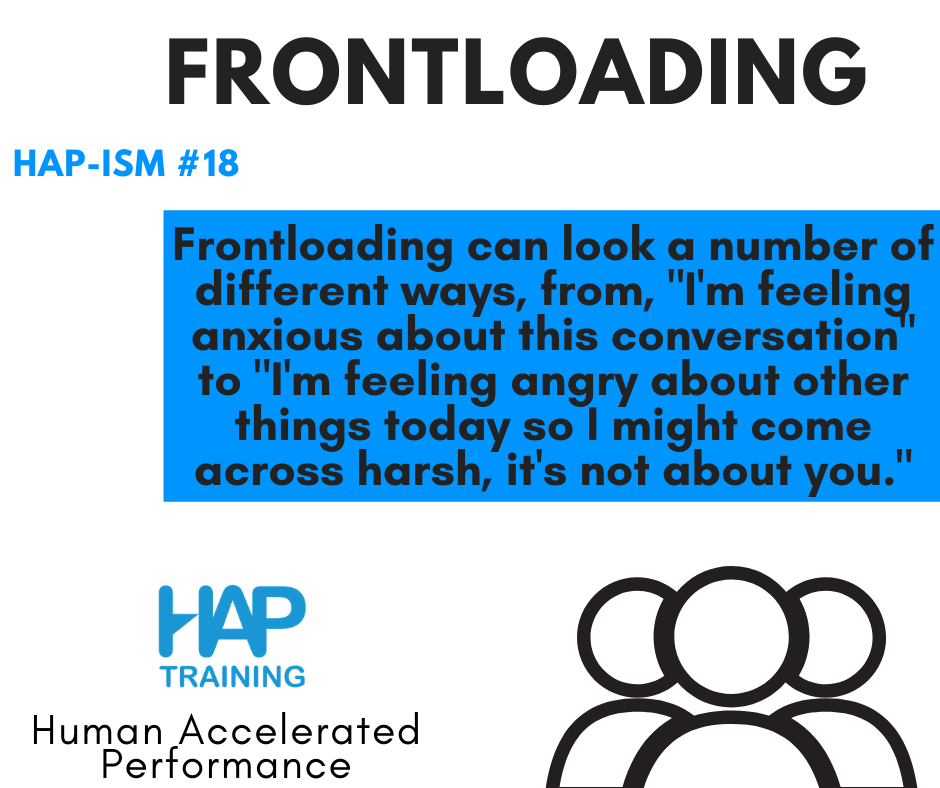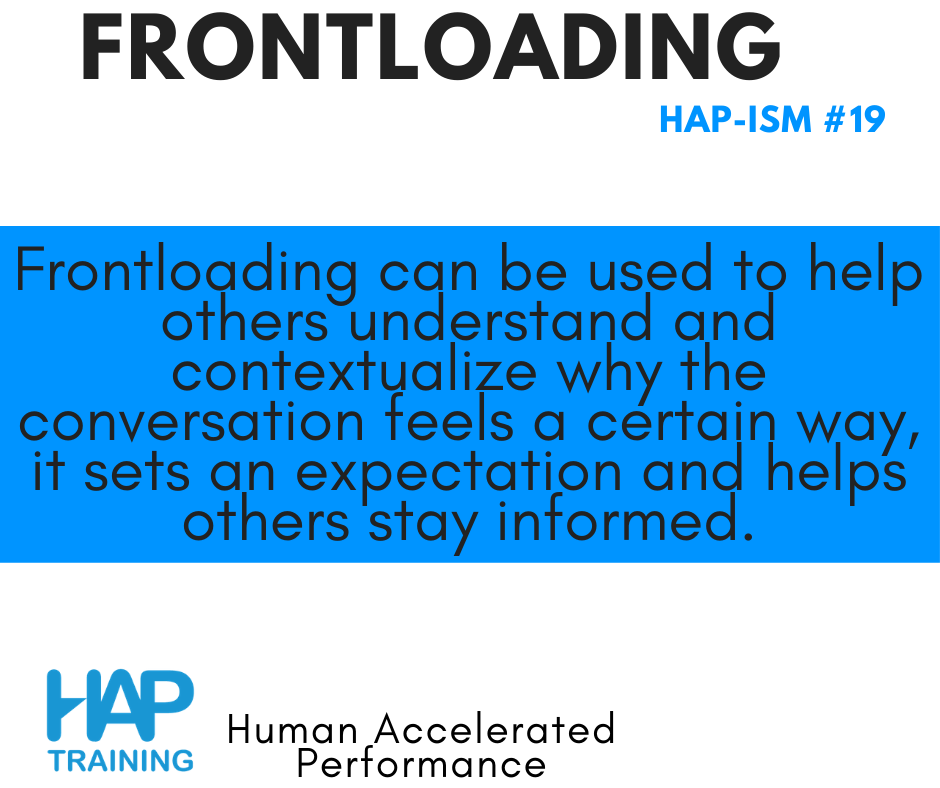What is Frontloading and How Will it Help Your Relationships?
What is frontloading?
Frontloading is when you speak to the tension that is in a conversation or could be in a conversation before it arises. Frontloading is a tactful skill we can use in conversation to mitigate the chances that it goes off the rails.

It’s important to look at frontloading as a skill we can do passively or actively. As something that we can be conscious of and use when we’re about to enter a tough conversation or when we want to contextualize where we’re at with another person.
Frontloading is a tactful skill that comes into play when we’re struggling with outside factors. Outside factors can be anything from school, family, work, financial, political… There are a million reasons to be stressed and to be overwhelmed by the workload or the burdens of life. When you know you’re already under stress or tension you can move into a conversation with intent.
We never want a conversation to spin out of control into anger, or eruption of any sort of emotions. We always say that a conversation moves forward or we’re not having it… That’s super important to how start a conversation and we use self check-ins to identify how we are doing before we enter a conversation so then we can utilize the power of frontloading to maintain good forward moving trajectories for our conversations.

Frontloading may look a number of different ways and be practiced in a number of different settings… What works in one might not be socially appropriate for another. Make sure you use norms and agreements to understand what’s appropriate. In a white-collar setting, being harsh or rude just isn’t acceptable and shouldn’t happen whereas in a blue-collar setting it’s more often found that we use quick language that may come across as harsh to the onlooker but is efficient and within the set norms and agreements decided on by the team and driven with a culture of accountability with compassion.

Why do we use frontloading?
It’s as simple as this… Frontloading can be used to help others understand and contextualize why the conversation feels a certain way, it sets an expectation and helps others stay informed.
What can we do to help you build HAPpier relationships, and HAPpier lives?
